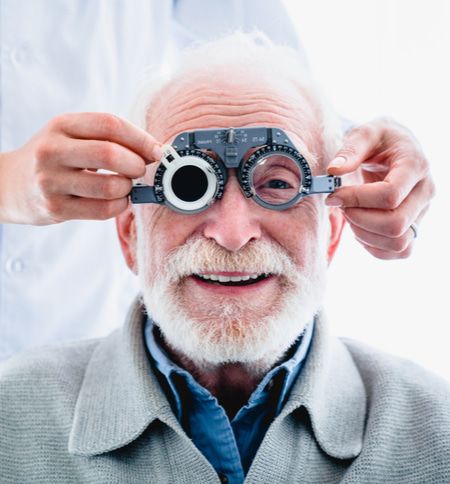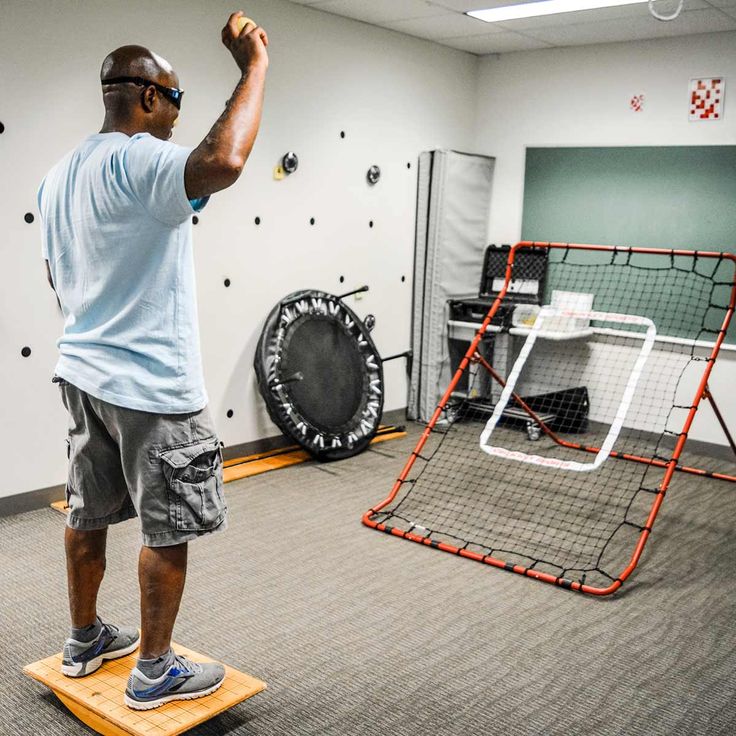Optometry is a dynamic and ever-evolving field, offering a range of career opportunities for those passionate about eye care. While most optometrists are skilled in general vision care, many opt to specialize in specific areas, allowing them to provide more targeted care and improve patient outcomes. Whether you're considering a career in optometry or a current optometrist seeking to explore new paths, understanding the various specializations in the field can help you identify the direction that suits your skills and interests best.
Common Specialties in Optometry
1. Pediatric Optometry
Pediatric optometry is a specialized field of eye care focused on children's visual health and development. Pediatric optometrists diagnose and treat a wide range of eye conditions that can impact a child's vision, such as amblyopia (lazy eye), strabismus (crossed eyes), and refractive errors. They perform comprehensive eye exams, prescribe corrective lenses, and may recommend vision therapy to improve visual skills and address developmental issues.
Pediatric optometrists play a key role in conducting vision screenings to ensure healthy visual development. Early intervention is crucial for identifying and addressing potential issues before they become long-term challenges. According to the American Optometric Association, nearly 25% of school-aged children have undiagnosed vision problems, making regular eye exams essential for academic success. Pediatric optometrists work in a variety of settings, including private practices, hospitals, clinics, academic institutions, and community health centers. They often collaborate with other healthcare professionals, such as pediatricians and developmental specialists, to provide comprehensive care for their young patients.
2. Geriatric Optometry

As the population ages, the demand for geriatric optometry continues to grow. Geriatric optometrists specialize in caring for older adults and addressing age-related eye conditions such as presbyopia (difficulty focusing on close objects), cataracts, and macular degeneration. These professionals play a crucial role in helping seniors maintain their quality of life by diagnosing and treating eye diseases, as well as providing preventive care to minimize future complications. For example, cataract surgery is a common procedure for older adults, and optometrists are key in pre-and post-operative care. By managing these conditions, geriatric optometrists help seniors preserve their independence and vision for years to come.
Geriatric optometrists work in a variety of settings, including private practices, hospitals, nursing homes, assisted living facilities, veterans’ clinics, and community health centers. They provide specialized care tailored to older adults and collaborate with other healthcare professionals to ensure comprehensive support. These diverse environments allow optometrists to make a meaningful impact on the well-being of seniors, helping them maintain clear vision and a high quality of life.
3. Contact Lens Specialization
Contact lens specialists are optometrists who focus on providing the best possible lens solutions for patients with complex vision needs. This specialization requires a deep understanding of the latest advancements in contact lens technology and the ability to fit lenses that may be needed for medical conditions, such as keratoconus, or for patients who require specialty lenses for astigmatism, presbyopia, or myopia control.
From the latest innovations in daily wear contacts to custom lenses for irregular corneas, contact lens specialists ensure that patients receive a comfortable fit and the most effective vision correction. Additionally, they educate patients on proper lens care to avoid complications like eye infections. Advances in materials and design now allow for more options, including contacts that can reshape the cornea overnight, offering a non-surgical alternative for those with refractive errors.
4. Ocular Disease Specialization
Ocular disease optometrists specialize in diagnosing, treating, and managing a variety of eye diseases. They often collaborate with ophthalmologists to monitor conditions such as glaucoma, diabetic retinopathy, dry eye syndrome, and retinal conditions like macular degeneration.
As primary eye care providers, they perform regular screenings to detect diseases early and prevent irreversible damage. Early diagnosis of conditions like glaucoma, which affects nearly 3 million Americans, can prevent vision loss and improve long-term eye health. Ocular disease optometrists often identify these diseases before symptoms appear, making their role in early detection vital for preserving vision.
These specialists work in various settings, including private practices, hospitals, specialty eye care clinics, and research institutions, where they contribute to advancing knowledge on eye diseases and treatments. Whether providing routine screenings or managing complex conditions, ocular disease optometrists play a key role in safeguarding their patients’ vision.
5. Low Vision Rehabilitation
Low vision optometry focuses on helping individuals with significant visual impairment that cannot be fully corrected with traditional eyewear or surgery. Optometrists in this field work with patients suffering from conditions like macular degeneration, glaucoma, and diabetic retinopathy. Their goal is to maximize the remaining vision of patients and improve their quality of life.
These specialists assess vision loss, recommend low vision aids such as magnifiers or telescopes, and provide rehabilitation to help patients adapt to their condition. Low vision optometrists typically work in private practices, hospitals, rehabilitation centers, and low vision clinics, often collaborating with other healthcare providers to ensure comprehensive care. As the aging population grows, the demand for low-vision services is expected to rise, making this specialty increasingly important in optometry.
6. Sports Vision Optometry

Sports vision optometrists focus on enhancing athletes' visual performance by improving skills such as hand-eye coordination, depth perception, and tracking. These specialists work with athletes of all ages and skill levels, from amateur enthusiasts to professional athletes, to refine their visual abilities. They also prescribe protective eyewear for specific sports to help reduce the risk of eye injuries, ensuring athletes can perform safely and effectively.
In the U.S., sports vision optometrists work in various settings, including private practices that specialize in sports performance, sports medicine clinics, and rehabilitation centers. They may also collaborate with athletic trainers, coaches, and physical therapists in sports teams and organizations to provide comprehensive care. Additionally, some optometrists work with college and professional sports teams, helping athletes gain a competitive edge through vision training and tailored eye care. These professionals may also be involved in research to further advance the understanding of vision's impact on athletic performance.
7. Neuro-Optometry
Neuro-optometry is an emerging and fascinating field that focuses on the relationship between the brain and the eyes. Optometrists in this specialization treat patients with neurological conditions that affect vision, such as those resulting from concussions, strokes, or traumatic brain injuries (TBI). These conditions can lead to symptoms like double vision, difficulty focusing, or visual processing disorders.
Neuro-optometrists work closely with neurologists and rehabilitation professionals to design treatment plans that address both the eye and brain’s role in vision. With the rise in sports-related injuries and the growing awareness of concussion risks, neuro-optometry is becoming increasingly important in helping patients recover from brain-related vision issues.
What Specialty is Right for You?
Choosing a specialty in optometry is a personal and exciting decision that depends on your interests, skills, and career goals. With so many options available, it can be challenging to determine which path aligns best with your passions. Here are a few factors to consider when deciding on a specialty that’s right for you:
Interests and Passions
Consider what excites you most in the field—whether it's advanced technology, problem-solving, or the chance to work in a specialized area like sports vision or low vision rehabilitation.
Skills and Strengths
Different specialties require different skill sets. For example, pediatric optometry may require empathy and patience, while neuro-optometry demands problem-solving skills and the ability to collaborate with other healthcare providers.
Patient Demographics
Think about the patient group you feel passionate about serving. Do you enjoy working with children, seniors, or athletes? Your preferred patient demographic can help determine which specialty best aligns with your career goals.
Career Opportunities
Specializations like ocular disease or contact lenses are in high demand, offering diverse career paths. Others, such as pediatric optometry, provide opportunities in private practices, hospitals, and research.
Training and Certification
Some specialties require additional training, fellowships, or certifications. Consider the time and commitment needed for further education in your chosen specialty.
Financial Considerations
Specialized training and certification can be costly. Weigh the financial investment required against the earning potential, as some specialties offer higher earnings due to greater demand.
Work-Life Balance and Job Satisfaction
Think about the work-life balance you desire. Some specialties may involve longer patient interactions and office hours, while others may offer more flexibility. Job satisfaction is key, so choose a specialty that keeps you excited to go to work every day.
Ultimately, the best optometry specialization for you is the one that aligns with your values, passions, and goals. Take time to explore each field, talk to professionals in the industry, and seek mentorship to help you make an informed decision. The right specialty can lead to a fulfilling career where you can truly make a difference in the lives of your patients.
By carefully considering these factors, you can make an informed decision about your optometry specialization and embark on a rewarding career path.
Conclusion
Optometry offers a broad spectrum of specializations, each with its unique focus and patient care approach. Whether you’re passionate about working with children, enhancing athletic performance, or managing complex ocular diseases, there’s a specialization that aligns with your interests and skills.
As the demand for specialized care continues to grow, optometrists who pursue advanced training and certifications in specific areas of the field are well-positioned for career advancement and the opportunity to make a lasting impact on patient care. The future of optometry is bright, and for those who want to take their practice to the next level, exploring a specialization is an exciting and fulfilling option.
Elevate Your Optometry Career with Verovian Optical Agency
At Verovian Optical Recruitment Agency, we specialize in connecting skilled optometrists with top opportunities across various specializations. Whether you’re looking to advance in pediatric optometry, sports vision, or ocular disease management, we can help you find the perfect role to match your expertise and career goals.
Ready to take the next step? Explore our latest job listings and discover your ideal opportunity today!




